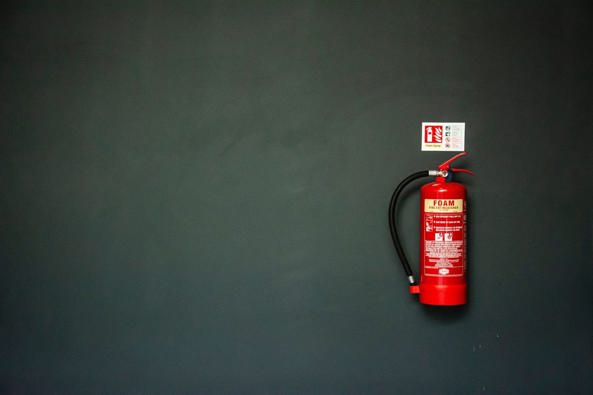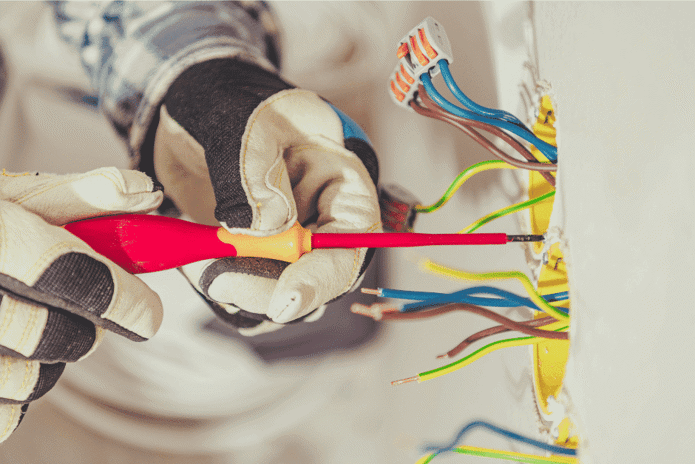
Key points:
-
The Homes Act and the Landlord and Tenant Act underpin housing standards.
-
The Renters Reform Bill and the Private Tenancies Act are examples of new legislation that will impact housing standards.
-
Social housing standards are set by the Regulator of Social Housing.
-
Meeting minimum standards helps ensure a good tenant experience and helps you avoid penalties and court action.
Understanding housing standards is critical for landlords. It helps them provide a good tenant experience and remain compliant with health and safety requirements.
But there are a lot of different housing standards and many are regularly updated. This makes them difficult to keep track of.
That’s why we’ve written this guide. It provides an overview of legislation and standards that landlords need to be aware of and comply with.
These are the latest updates as of November 2023. We’ll make regular updates to this page to keep you up to date.

Laws That Underpin Housing Standards
Two factors underpin housing standards:
Written standards and guidelines: These are documents written by government departments or professional bodies. They explain in detail what good-quality housing looks like. A good example of this is the Housing Health and Safety Rating System (HHSRS).
Laws: These compel landlords to follow the standards and guidelines. They also outline the penalties that will be issued if landlords fail to meet or follow them.
Here are the two main pieces of legislation governing rental housing standards in England and Wales:
⚖️ Homes (Fitness for Human Habitation) Act 2018: The Act requires that landlords meet property quality and safety standards.
⚖️ The Landlord and Tenant Act 1985: This requires landlords to ensure all parts of their rental properties are fit for human habitation.
‘Human habitation’ covers a range of factors, including:
-
The property’s state of repair
-
Its stability
-
Damp
-
Internal arrangement
-
Natural lighting levels
-
Ventilation
-
Water supply
-
Drainage
-
Kitchen facilities
-
Hazards
What are the new landlord rules for 2023?
Several pieces of new legislation relevant to landlords have been (or are set to be) introduced in 2023.
⚖️Renters Reform Bill
The Renters Reform Bill is currently being debated in Parliament. If it gets written into UK law, it will also help enforce minimum housing standards.
-
Social housing landlords will be required to join a government-approved ombudsman which could adjudicate on complaints relating to, among other things, failure to comply with minimum housing standards. Private landlords can join voluntarily.
-
Landlords will be required to sign up to a digital property portal where they will have to demonstrate compliance with regulatory requirements.
-
All private landlords will need to meet the Decent Homes Standard. This involves a property score above 1,000 or more under the HHSRS.
⚖️The Private Tenancies Act (2022)
The Private Tenancies Act brings in a raft of new tenancy rules, including:
-
Landlords must give tenants 28 days’ notice of changes relating to their tenancy. This could include rent, rates, landlord contact details and tenancy length.
-
Provide a detailed receipt for any cash payments made to the landlord.
-
Tenancy deposits are limited to one month’s rent.
-
Landlords will need their tenant’s permission to keep a deposit when a tenancy agreement ends and a new one begins.
What Are the Standards for Social Housing?
Social housing standards are set by the Regulator of Social Housing (RSH).
All social housing providers are required to register with the RSH and it can take action against them if its standards are breached.
The standards are divided into two main areas: economic and consumer.
Economic standards
All social housing providers (with the exception of local authorities) need to prove they meet three economic standards:
-
Governance and financial viability: The organisation must be well-run and remain financially viable, so as not to put the housing stock at risk.
-
Value for money: The social housing provider needs to have a clear strategy and objectives, as well as optimising the use of resources in delivering these objectives.
-
Rent: The organisation’s approach to rent must meet the government’s latest rent standard.
Consumer standards
Consumer standards apply to all registered social housing providers, including local authorities.
There are five consumer standards:
-
Homes: This ensures that the accommodation provided, as well as repairs and maintenance services, are good quality.
-
Tenancies: This governs how homes are allocated and tenancy terms are set.
-
Neighbourhood and community: This governs the management of communal areas and issues around anti-social behaviour.
-
Tenant involvement and empowerment: This covers customer service, complaints, tenant rights and involvement.
-
Tenant satisfaction measures: Social housing providers need to report on areas such as repairs, safety checks and complaints.
The regulatory standards are just one part of a wider regulatory framework for social housing providers. This also covers codes of practice and guidance for providers.
Why Is Meeting Minimum Housing Standards Important?
There are several reasons why landlords should strive to meet minimum housing standards.
It helps landlords provide a good resident experience
Minimum housing standards are useful guidelines that help landlords understand what “good” accommodation looks like. This allows them to provide a good service to their residents. This is important for two main reasons:
🏠 The quality of someone’s home affects their quality of life.
🏠 Everyone has the right to a home that is safe and well-maintained.
There are penalties for not meeting standards
If you don’t meet minimum housing standards, your residents could either complain to their local council or take you to court.
Council complaints
If a resident complains to their local authority, it may order an inspection of the property.
If the council agrees that your property does not meet minimum standards, it will issue you with an improvement notice. This tells you what you need to fix and by what date.
An improvement notice isn’t the only enforcement action your local authority can take. For example, they could issue a prohibition notice, which stops parts of your property from being used. In the worst cases, they can even demolish properties.
Failure to meet a council enforcement action could result in a fine of up to £30,000.
Court action
If tenants take you to court and win then you could be ordered to make the repairs, pay compensation, and even pay your resident’s legal costs.
| 💡Residents’ responsibilities |
|
Landlords aren’t the only ones responsible for keeping up their tenancy agreements. Your residents are also responsible for treating the property well. They are responsible for repairing anything they break due to misuse or accidental damage. They will also be expected to deal with minor repairs such as changing light bulbs. |
Minimum Housing Standards
Here are the minimum standards landlords are expected to meet in England and Wales.
Structurally sound

Before landlords can rent out a property they need to ensure it is structurally sound. This means the following elements should be in good condition, with no signs of damage or leakage:
-
Walls
-
Floors
-
Roof
-
Bathroom
-
Kitchen fittings
-
Pipework
-
Fixtures and fittings
-
Electrics
Safe levels of damp and mould

Damp and mould can make your residents ill and damage your property, so it’s critical you deal with it as soon as possible.
There are three main types of damp:
-
Rising damp
-
Penetrating damp
-
Condensation
The first two are exclusively the responsibility of the landlord. If your resident reports one of these then you should deal with it as swiftly as possible.
Condensation is more complicated. It is caused when there is too much moisture in the air and so it settles on cold surfaces as water droplets. If water droplets keep settling on an area then eventually it will start to go mouldy.
Landlords need to ensure their rental properties are well-ventilated and have adequate heating systems.
But your tenant is responsible for ensuring that moisture doesn’t build up in the home. They are also responsible for using ventilation and heating systems correctly. It’s a good idea to talk to your residents about condensation and explain what it is and how to avoid it.
To find out more, read our article on damp and mould.
No hazards
Your property needs to be a safe and healthy environment for your tenants. According to the government’s How to Rent a Safe Home guide, this covers:
✅ Temperature
Cold conditions can cause damp and health problems. Make sure that:
-
Your property’s temperature can be maintained at 18-21 degrees at a reasonable cost to your tenant.
-
The heating system is adequate and in good working order.
-
The property is suitably insulated and meets an EPC rating of E (we’ll explain exactly what this is later).
-
Fix any broken windows or doors.
✅ Physical hazards
Trips and falls can lead to injuries and cause long-term disabilities. This is especially true for older people and children.
-
Keep stairs and floor surfaces in good condition and remove or fix any trip hazards.
-
Add restrictors or safety rails to any low-level window.
-
Ensure the stairs are well-lit with suitable handrails.
✅ Overcrowding
Landlords should ensure the property is rented to a suitable number of people. They need to follow guidelines for minimum room sizes.
✅ Security
Tenants should be able to secure all doors, windows and other points of entry to avoid break-ins. Access to the property should be well-lit.
✅ Lighting
Adequate lighting should be provided throughout the property to help avoid trips and falls.
✅ Hygiene
You need to provide adequate cooking, bathroom and waste disposal facilities. HMO landlords also need to provide bins and adequate waste disposal.
✅ Water
You should ensure that the water supply is in good working order and that drinking water comes directly from the mains supply. Failure to do so can lead to your tenants getting ill.
✅ Pests
You need to ensure the property is vermin-free. Speak to your tenants to ensure they understand how to avoid attracting pests. Maintaining your property and providing secure waste disposal will help deter pests.
✅ Remove or manage hazardous substances
Be wary of anything that might contain asbestos or lead, as well as anything that could leak carbon monoxide. If you are concerned about any of these then get a professional to inspect your property and remove any hazards.
✅ Structural issues
A poorly maintained property could lead to injury. For example, if a tile falls from the roof. Check that the following are in good condition:
-
Roof
-
Gutters
-
Windows
-
Walls and rendering
Also check that you can access all areas of the property safely.
Meet fire safety standards

To meet fire safety standards, landlords need to ensure that each of their properties has a working smoke alarm on every floor used for residential purposes.
They also need to provide a carbon monoxide alarm in every room with a combustion-based utility - in other words, something that ignites a fuel.
Landlords are responsible for:
🔥Testing smoke and carbon monoxide detectors.
🔥Replacing broken or faulty smoke and carbon monoxide detectors.
Tenants are responsible for ensuring smoke and carbon monoxide alarms have working batteries during their tenancy.
| 🔥HMOs have additional fire safety rules |
| Houses of multiple occupation (HMOs) have additional fire safety rules. For example, you usually need to install heat alarms and provide fire safety equipment like extinguishers and fire blankets. This guide provides a detailed overview of what is required. |
Having the right soft furnishings also plays an important role in meeting fire safety standards. All furniture you supply with a rental property must:
-
Have fire safety labels
-
Be fire-resistant
-
Meet the regulatory requirements set out in the Furniture and Furnishings (Fire Safety) Regulations
Provide a gas safety certificate

Landlords have clear requirements when it comes to gas. Here is a summary:
🌀Gas appliances and flues must be maintained by a Gas Safe registered engineer.
🌀You must provide a landlord gas safety record certificate at the start of the tenancy and within 28 days of each annual gas safety check.
🌀You can find suitably qualified engineers on the Gas Safe Register.
🌀Once you have received your gas safety certificate, you should check it for issues and take action as soon as reasonably possible.
Provide an electrical safety certificate

Like gas, a landlord’s requirements when it comes to electrics are also clear. Here’s an overview of what you must do:
⚡Have electrics at each rental property checked every five years by a qualified electrician.
⚡The electrician will provide you with an electrical safety certificate. You must provide this to your tenants.
⚡You must share inspection results with tenants within 28 days.
⚡Share inspection results with new tenants before occupancy.
⚡Share the report with the local authority within 7 days upon request.
⚡Retain a copy for the next inspection.
⚡Complete necessary remedial work within 28 days.
⚡Confirm completion of remedial work in writing to your tenant within 28 days.
Reach an E EPC rating
An Energy Performance Certificate (EPC) indicates how energy efficient a property is by giving it a rating, from G for inefficient properties up to A for very efficient ones.
This rating explains how much it will cost to heat or light the property and the volume of carbon dioxide emissions it will produce.
Energy efficiency standards stipulate that all rental properties must achieve an EPC rating of E or above.
EPCs tell you:
-
Roughly how much the property’s gas and electric bills will be.
-
How energy efficient it is.
-
It also identifies features that impede the property’s energy efficiency - like single glazing.
-
Recommended improvements.
As a landlord, you need to:
-
Display the EPC rating of the property when it is advertised.
-
Provide a valid EPC to potential tenants as early as possible.
-
Provide a valid EPC at the start of each new tenancy.
-
Make energy efficiency improvements up to a value of £3,000 to bring the property up to an E rating or above.
| 💡Plans for minimum EPC rating of C to be scrapped |
|
The UK government has scrapped plans to require rented properties to meet an EPC rating of C or above by 2025. Landlords would have needed to spend a maximum of £10,000 on trying to achieve this rating. However, the National Residential Landlords Association (NRLA) has said this policy could be reinstated if there is a change of government. |
Use a deposit protection scheme
It is a legal requirement under the Housing Act to store your residents’ deposits in a deposit protection scheme.
There are three schemes in the England and Wales and you’ll need to sign up to one of them:
Comply with Property Standards: Get EVO
A large part of complying with property standards involves ensuring your rental properties are in a good state of repair and that any issues are dealt with efficiently.
That’s where EVO can help. Our end-to-end digital platform allows landlords to outsource all their repairs and maintenance.
This takes the hassle out of keeping your properties in great condition and allows you to provide a great resident experience.
Here’s how it works:
✔️We allow tenants to request their own repairs via a mobile app, putting them in control of their home.
✔️The job is then automatically assigned to the next available skilled tradesperson - meaning fewer delays and less admin.
✔️Tradespeople are sent all the information they need before the job, including photos and property information, meaning fewer repeat visits.
✔️Key nest system makes property access easy and secure for tenants and tradespeople.
✔️Real-time job status keeps you and your tenants informed.
✔️Full property history enables you and your tradespeople to see what work has been done in the past.
✔️12 month warranty on all jobs.
✔️Collect and analyse property data for better decision-making.
✔️24/7 emergency cover, meaning no more panicked calls at all hours.
Get in touch to find out how EVO can help make your property maintenance and repairs more efficient.
PHOTO BY EVO


